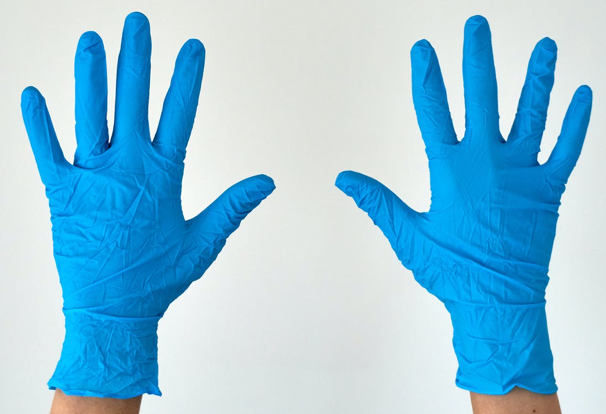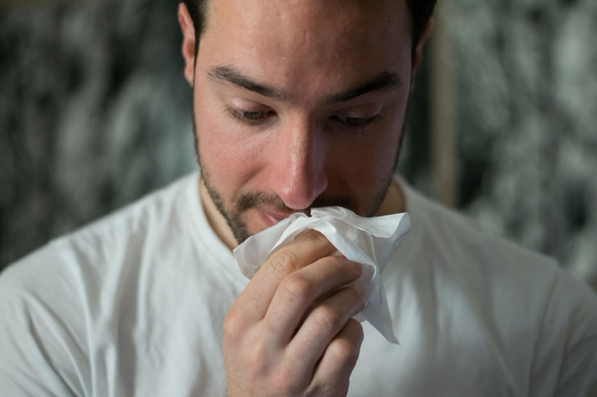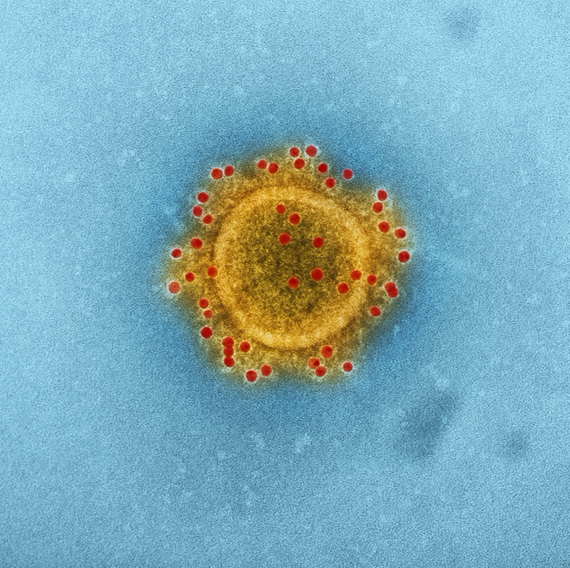Category Archives: Allergy Symptoms
Types of Allergic Reactions
What are the different types of allergic reactions? The immune system in the body is responsible for protecting us against bacteria and viruses. This system consists of certain components that make up your blood, and fight against any harmful substances that are a threat to your body. This defense mechanism enables your body to eliminate unfavorable substances.
In some cases, your immune system may respond to substances that are not exactly a lethal threat to your health. This happens when you have an immune system that is highly sensitive to foreign substances that enter your body.
The medical term for these substances is allergens. When allergens find ways to enter your system, you experience physiological changes in your body. These changes are due to an allergic reaction. You create a path of entry for these allergens by touching, inhaling or eating them. Each person can be allergic to specific substances. However some substances are more common than others.
Doctors also use allergens for diagnosis and treatment. The method of vaccination involves injecting micro doses of allergens to manipulate an immune response that can be helpful for you.
Types of Allergic Reactions
People may experience allergic reactions of different types depending on their condition. Some allergic reactions classify under immediate reactions. These reactions do not take time to occur and happen rapidly. On the other hand, allergic reactions classify under delayed allergic reactions, and these can typically take about 24 hours to occur.
Anaphylactic Reaction
This type of allergic reaction is one of the most severe reactions. It can happen within minutes of exposure and can be life threatening. Doctors may also call this an anaphylactic shock and it is a serious medical emergency. People who suffer from anaphylactic reaction may go through swelling, difficulty in breathing, and changes in blood pressure.
A person may experience this reaction due to the exposure of pollen, certain foods or insect bites. Furthermore, a patient with bronchial asthma is very susceptible to an anaphylactic shock.
Immunocomplex Reactions
Just like anaphylactic reaction, antibodies and proteins mediate an immunocomplex reaction. In this reaction, antibodies bind with allergens to form immunocomplexes, causing an allergic reaction in a person. This reaction is also an immediate response, commonly seen in people with lupus and serum sickness.
Cytotoxic Reaction
This type of reaction is also an immediate reaction. Patients with autoimmune blood disorders like anemia or ITP suffer from cytotoxic reactions. This reaction initiates when the antibodies activate the complement system in our bodies. This system is a component of our immunity, which causes the antibodies to work against the favor of your system, resulting in cell damage. Therefore, the cyctotoxic reaction is an autoimmune response to allergens.
Cell mediated Reactions
These types of allergic reactions are delayed allergic reactions, and the symptoms for these reactions can take 24 hours or more to appear after the exposure to allergens. Long-term infectious diseases like tuberculosis and certain fungal infections produce cell mediated reactions.
Types of Allergic Reactions: Triggers
Certain external substances are responsible for triggering an immediate allergic response in people. These include:
- Certain foods, such as peanuts, milk, red meat, fish, shellfish, wheat
- Dust particles
- Pollen particles
- Latex
- Insect bites
- Cockroaches
- Pet dander
- Certain plants
- Medications, such as aspirin, ibuprofen, penicillin
- Certain type of metals
- Grass
Symptoms of an Allergic Reaction
An allergic reaction is symptomatic, and some of the common symptoms include:
- Sneezing, runny rose, excessive production of mucus, blocked nasal passages. You can experience these symptoms when you have allergic rhinitis
- Itchy, red and watery eyes (Allergic conjunctivitis)
- Headache and migraines
- Tightness of chest, difficulty in breathing, coughing
- Red itchy rashes on skin(hives)
- Chest congestion
- Swelling on face, lips, fingers or feet
- Stomachache, diarrhea, vomiting,
Diagnosis and Treatment
An allergist specializes in the diagnosis and treatment of allergies. They use different approaches for diagnosis and treatment depending on the severity of the condition. Professionals can diagnose acute allergic reactions by simply observing the symptoms, while chronic conditions may require special tests and blood work.
When an allergist identifies the triggers, they come up with the most suitable treatment for you. These treatments range from pharmaceutical drugs to natural remedies. While there is not really a cure for allergic diseases, temporary solutions can immensely help you live your life unbothered.
Types of Allergic Reactions: Conclusion
Regardless of the treatments, it is important to keep in mind that prevention is better than cure. Therefore, avoiding allergic triggers is the best way to go about. An immunologist or allergist specializes and practices specifically for immune related conditions.
If you suffer from problems such as allergies, asthma, autoimmune disease, or any immunodeficiency disease, you should book an appointment with Dr Sneeze to find an adequate solution and get relief as soon as possible.
Call today for an appointment 212-679-1200.
Anaphylactic Shock
Anaphylactic shock occurs due to Anaphylaxis. This condition occurs when your body severely reacts to a substance, and on contact, you start experiencing a life-threatening reaction. When this happens, your body will release some chemicals. There are various serious consequences and complications for these conditions. If you are unable to visit an immunologist in time, this can be very dangerous as anaphylactic shocks can be fatal.

(Source)
Causes of Anaphylactic Shock
When your antibodies consider or overreact with food or any other harmless substance called allergens, it causes Anaphylaxis. Antibodies are the special body cells that attack and destroy infections such as bacteria or viruses that enter the body. You may not react when you come in contact with it as this will make antibodies active. However, when the next time that substance enters your body, the immune system overreacts and causes symptoms.
Children mostly suffer from anaphylactic shock due to food. The most common food children react to include wheat, soy, eggs, milk, fish, shellfish, or peanuts. However, in adults, peanuts, tree nuts (such as almonds, pine nuts, pistachios, cashews, hazelnuts, and walnuts), or shellfish, can lead to anaphylactic shock as well.
You may experience Anaphylaxis due to various allergens. Allergens are substances that are not harmful, but your body treats that substance as a threat. Here are some allergens that your body may find allergic:
- Pollen from grass, tree, and ragweed
- Touching and inhaling protein particles from latex. These protein particles are available in balloons, gloves, and rubber bands.
- The sting from insects can also cause you a severe anaphylactic shock.
The immune system of many people also reacts to the following substances:
- Hazelnut
- Celery
- Kiwi
- Potato
- Peanuts
- Melons
- Chestnuts
- Papaya
Sometimes a combination of various foods along with breathing allergens can cause severe anaphylactic shock. So you need to be aware of what things you are allergic to and avoid those substances.
Symptoms
When you are in contact with a substance you are allergic to, you will start experiencing the symptoms immediately. The initial symptoms include runny nose and uneasiness. However, if you are still in contact with the substance, you will develop severe symptoms such as:
- You will experience an increase in your heartbeat
- You might faint
- You will experience dizziness
- You will start vomiting
- Difficulty in breathing and tightness in the chest
- The mouth will also swell
- You may also develop hives
When your condition is worse, you may faint and stop breathing. You might lose your consciousness and require urgent medical attention.
Treatment for Anaphylactic Shock
When you are experiencing an anaphylactic shock, the first thing that you need to do is to inject epinephrine, which will give you a bit of control. After that, you need to visit the immunologist so that you can receive more adrenaline through IV. Antihistamines and glucocorticoids are also effective with this condition. These medications will help you reduce the inflammation in your esophagus and restore your ability to breathe.
Immunologists might also give you beta-agonists so that you can breathe easily. You can get enough oxygen by receiving supplemental oxygen. An immunologist will also treat any complication that you may experience after having an anaphylactic shock.
Prevention
You can avoid anaphylactic shocks by preventing the following practices:
- You can wear a tag or a card around your neck. This will show everyone that you are allergic to specific substances.
- Always keep your emergency kit along with you so that you can relieve from anaphylactic shocks and contact the immunologist. There are various injectors and shots that you can always carry for use when you are in an emergency.
- You need to alert your immunologist whenever you go through anaphylactic shock.
- Allergies from the sting of the insects need more care. For instance, you should wear long sleeves while going out, keep your windows and doors closed, etc.
- For food allergies, you need to read the ingredients of the product you are using.
- While visiting the restaurant, you should inform the waiter about the food that is allergic so that they can suggest only the food that does not include that item as an ingredient. You should remember that even a small quantity can trigger your allergy.
Conclusion
When you find someone experiencing anaphylactic shock, you need to immediately contact an immunologist and seek help. Sometimes when you take epinephrine doses, you still need medical attention or further care, so visit the immunologist after the attack. Various medications can help you relive instantly. However, before using any medication, always consult with the immunologist to avoid any risk of reaction.
Do you need to consult with an immunologist about an allergic reaction? If so, please contact us at 212-319-5282, or visit our offices in Midtown New York City. You can also schedule a telehealth consultation with our immunologist, Dr. Boyan Hadjiev, to discuss your condition.
Sources
https://www.healthline.com/health/anaphylactic-shock#treatment
https://www.webmd.com/allergies/anaphylactic-shock-facts#
https://www.mayoclinic.org/diseases-conditions/anaphylaxis/symptoms-causes/syc-20351468
https://www.webmd.com/allergies/understanding-anaphylaxis-treatment
Do You Have An Allergy? Here Are The Signs
What are the signs and symptoms of an allergy? You may feel irritated with continuous itchy skin or eyes, rash, pain in the throat, or any other allergic symptoms. You can develop a rash due to various reasons, such as poison ivy, which is the oil extract of a specific plant’s leaves. Allergies can give you itchy skin, or your body can even overreact when you eat specific food items.
You can also develop a rash through illnesses such as chickenpox and measles. Hives and eczema are allergies that commonly cause skin rashes. If you are suffering from rashes because of allergies, then you need to visit an immunologist. An immunologist will diagnose your condition and treat it accordingly so that your immune system works perfectly.

(Source)
Signs and Symptoms of Allergies
Your allergic symptoms depend on allergens and the type of allergies you are prone to. For instance, dust allergies will cause different symptoms than latex allergy. Here are some types of allergies and their symptoms to help you identify what you are experiencing and why.
1. Hay Fever
Allergic rhinitis or hay fever can cause cold symptoms—for instance, itchy eyes, runny nose, sinus pressure, sneezing, and congestion. You develop a cold because of a virus. However, hay fever occurs due to an overreaction of the immune system. Allergens such as dust mites, pollen, a pets’ saliva, and pets’ dander are a few reasons why you are experiencing allergies. Below you will find some signs of hay fever:
- Tiredness
- Headache
- Loss of smell
- Earache
- Coughing and sneezing
- Blocked or runny nose
- Itchy ears, nose, mouth, and throat
- Itchy, watery, and red eyes
- Pain in your forehead and temples
- Headache
People with asthma may experience the following signs as well:
- Cough and wheezing
- Shortness of breath
- Tightness in the chest
2. Dust Allergy
Dust mites are prevalent in every house. You may develop hay fever if you are allergic to dust mites. These tiny bugs can lead to difficulty in breathing, runny nose, and sneezing. Some signs of dust allergies are:
- Cough
- Postnasal drip
- Itchy skin
- Itchy throat, mouth, or nose
- Stuffy nose
- Watery, red, or itchy eyes
- Runny nose
- Sneezing
If you have asthma, then you might experience the following symptoms:
- Wheezing, coughing, shortness of breath
- Difficulty in sleeping
- Wheezing and whistled breaths
- Pain and tightness of chest
- Difficulty in breath
3. Mold Allergy
When you are allergic through the year in various seasons, you might be allergic to mold or fungi. You will find mold everywhere. When you upset the source of the mold, it will spread spores into the air. When you inhale those spores, it triggers allergies, and you start showing signs. You may experience mold allergy commonly from July till fall. However, fungi are available throughout the year, so you may develop this allergy throughout the year. Here are some signs and symptoms of mold allergy:
- Watery eyes
- Itchy throat, eyes, and nose
- Postnasal drip and cough
- Stuffy and runny nose
- Sneezing
- Scaly and dry skin
4. Pet Allergy
There are proteins in the urine, skin, and saliva of various animals that can cause you an allergic reaction. You can also experience allergy through pet dander (skin or dead flakes). People are mostly allergic to dogs and cats because of the fur. You may experience various signs due to swelling of the nasal passage. Here are some of those signs:
- Cough
- Postnasal drip
- Itchy throat, the roof of your mouth, and nose
- Nasal congestion
- Itchy or watery red eyes
- Runny nose
- Sneezing
- Pain and pressure on the face
- Insomnia
- Blue skin and swelling under the eyes
You can experience the following symptoms if you have asthma:
- Wheezing, coughing, and shortness of breath, making it hard to sleep
- Extreme wheezing and whistling
- Pain and tightness of chest
- Difficulty in breath
5. Food Allergy
If you are allergic to some food items, even the smallest amounts of that food and your immune system will overreact. You will experience various symptoms, such as swollen airways, hives, and digestive disorders. For some people, food allergies can be deadly. Symptoms of food allergies include:
- Itchy eyes and sneezing
- Diarrhea or abdominal pain
- Vomiting or nausea (feeling of sickness)
- Lightheaded and dizziness
- Shortness of breath and wheezing
- Difficulty in swallowing
- Swollen throat, mouth, and face
- Rash, red and itchy skin
- Itchy and tingly mouth

(Source)
Allergy Signs: Conclusion
Allergies can sometimes become severe. Various allergies can be deadly. To avoid any severe reaction, you need to identify the allergens for your allergy. An immunologist will help you identify the allergens you are allergic to. They will also help you with the treatment to reduce the reaction of your allergies.
Dr. Boyan Hadjiev is one of the best immunologists in New York City. You can make an appointment with him by calling us at 212-319-5282. Dr. Hadjiev also offers telemedicine apponitments.
Sources
https://acaai.org/allergies/types/skin-allergies
https://www.mayoclinic.org/diseases-conditions/hay-fever/symptoms-causes/syc-20373039
https://www.nhs.uk/conditions/hay-fever/
https://www.mayoclinic.org/diseases-conditions/dust-mites/symptoms-causes/syc-20352173
https://www.aafa.org/dust-mite-allergy/
https://www.aafa.org/mold-allergy/
https://www.mayoclinic.org/diseases-conditions/mold-allergy/symptoms-causes/syc-20351519
https://www.mayoclinic.org/diseases-conditions/pet-allergy/symptoms-causes/syc-20352192
Serving all of New York City and the Tri State Area including Zip Codes: Top Allergist NYC Midtown, Chelsea and Clinton: 10001, 10011, 10018, 10019, 10020, 10036 | Gramercy Park and Murray Hill: 10010, 10016, 10017, 10022 | Greenwich Village and Soho: 10012, 10013, 10014 | Lower Manhattan: 10004, 10005, 10006, 10007, 10038, 10280 | Lower East Side: 10002, 10003, 10009 | Upper East Side: 10021, 10028, 10044, 10128 | Upper West Side: 10023, 10024, 10025


